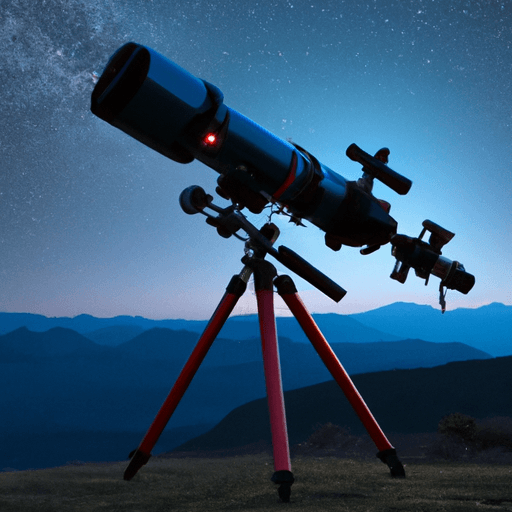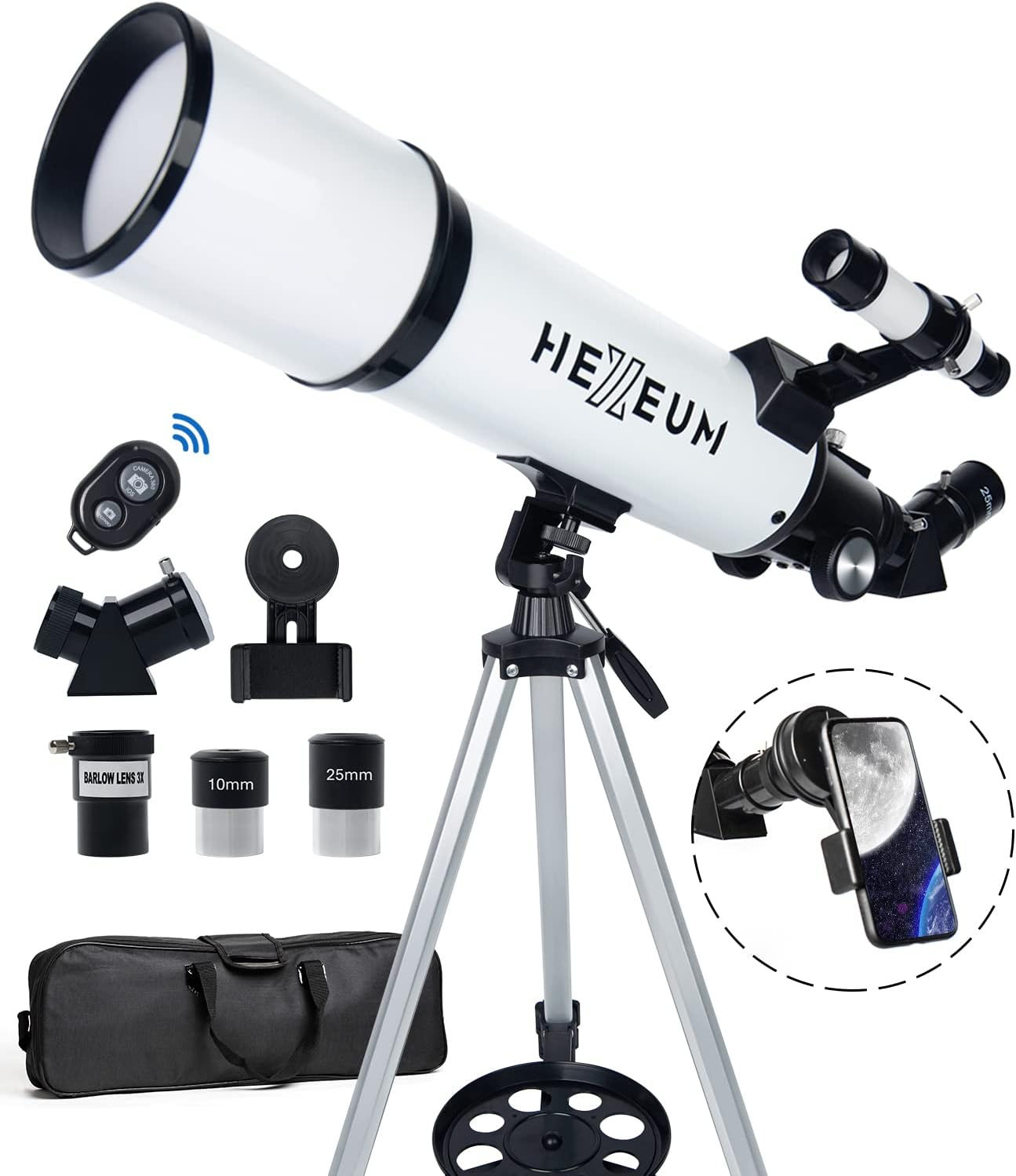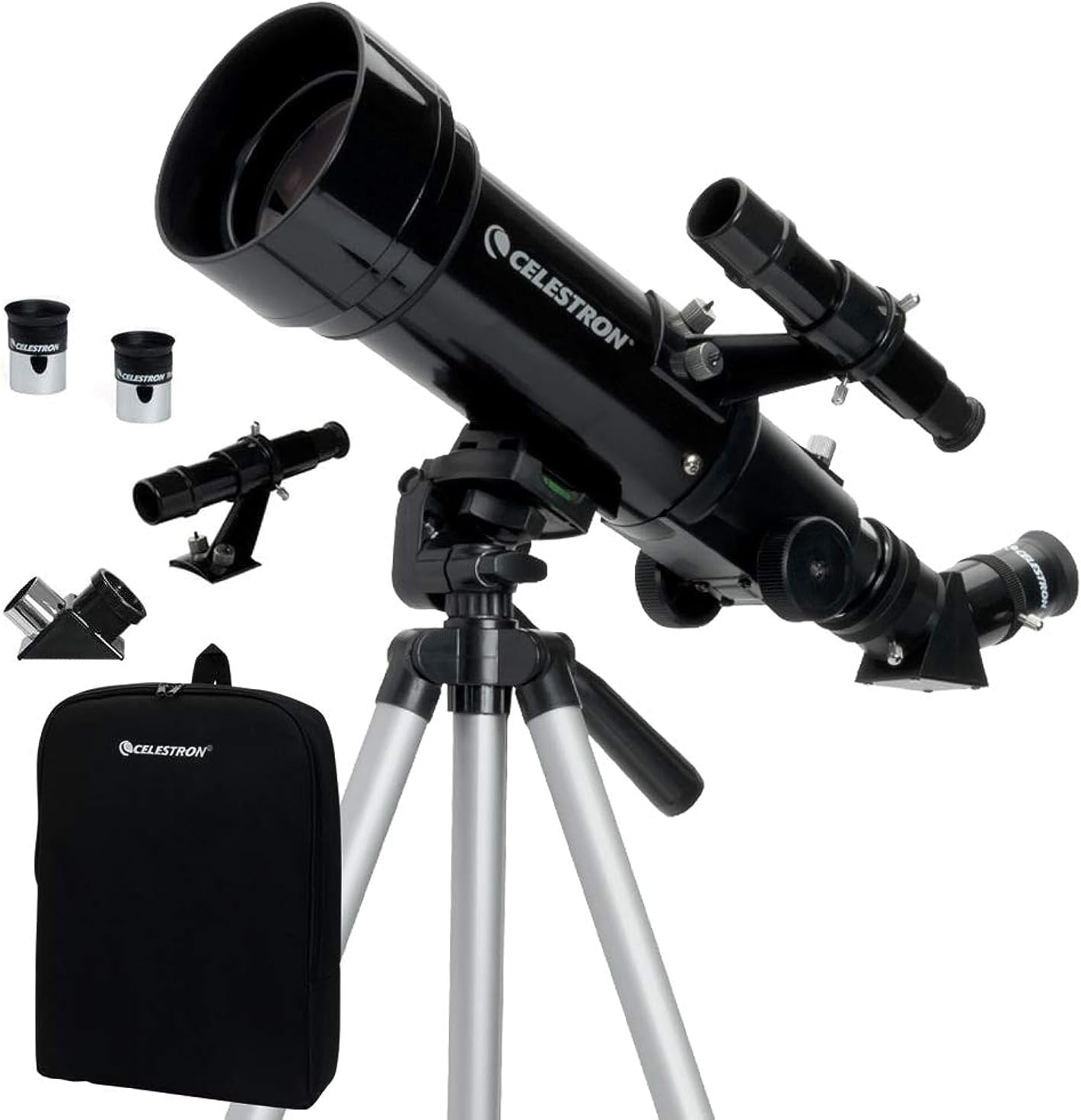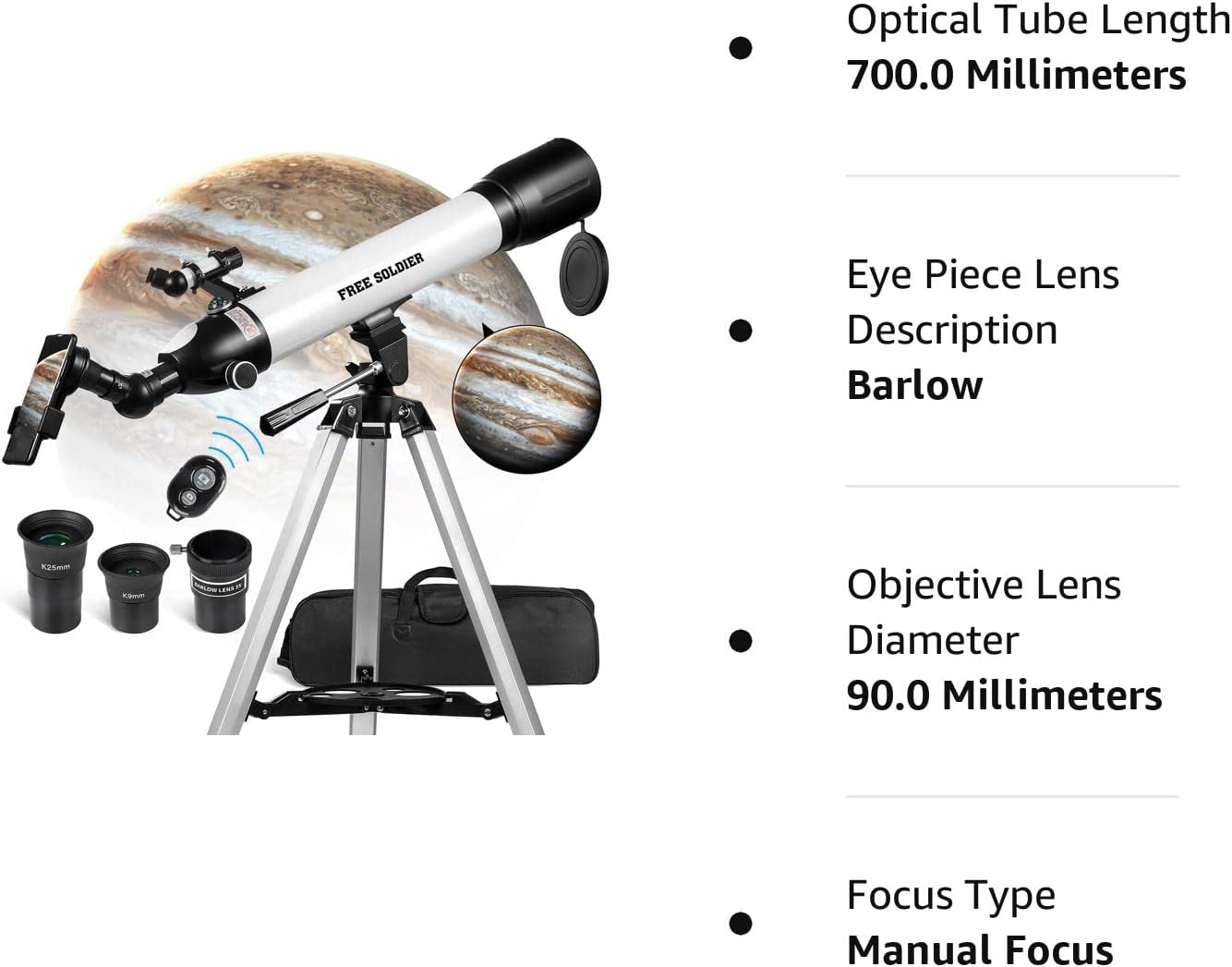So you’re interested in stargazing and eager to embark on your astronomy journey! You may be wondering, what is the best telescope for beginners? Well, let me shed some light on this for you.
When it comes to choosing the perfect telescope for a beginner, it’s important to consider a few key factors. Firstly, think about your budget. Telescopes range in price, from affordable options to more advanced and pricey ones. It’s always wise to start with something within your budget, as you can always upgrade later on. Secondly, consider the type of telescope that suits your needs. There are generally three types: refractor, reflector, and compound. Each has its own advantages and disadvantages, so it’s worth doing some research to determine which one aligns with your interests. Lastly, keep in mind the portability and ease of use. As a beginner, you’d want a telescope that is relatively simple to set up and operate, allowing you to spend more time observing the wonders of the night sky rather than struggling with complicated equipment.
So, with these factors in mind, take some time to explore different telescopes and read reviews from fellow astronomy enthusiasts. Remember, choosing a telescope is a personal decision, and what may work for someone else might not be the best fit for you. With a bit of research and consideration, you’ll find the perfect telescope to start your journey into the fascinating world of astronomy. Happy stargazing! If you’re new to the world of stargazing and astronomy, choosing the right telescope can be a daunting task. With so many options available, it can be difficult to determine which telescope will suit your needs and interests best. In this article, we will explore the different types of telescopes, considerations for beginners, top telescope brands for beginners, and the best telescopes for beginners. We will also discuss additional accessories that can enhance your stargazing experience. So let’s dive in and find the perfect telescope for you!

Types of Telescopes
When it comes to telescopes, there are four main types to choose from: refractor telescopes, reflector telescopes, compound telescopes, and Dobsonian telescopes. Each type has its own advantages and disadvantages, so it’s essential to familiarize yourself with them before making a decision.
Refractor Telescopes
Refractor telescopes use a lens to gather and focus light. They are known for providing sharp and high-contrast images, making them ideal for observing planets and the moon. Refractor telescopes are also relatively low-maintenance and easy to use, which makes them a popular choice for beginners. However, they tend to have smaller apertures and can be more expensive compared to other types of telescopes.
Reflector Telescopes
Reflector telescopes, on the other hand, use a mirror instead of a lens to gather and focus light. They are generally more affordable and offer larger apertures, making them better suited for observing deep-sky objects like galaxies and nebulae. Reflectors do require periodic collimation, which involves aligning the mirrors to maintain optimal performance. While reflector telescopes can provide breathtaking views, they may not be as portable as other types due to their longer optical tubes.
Compound Telescopes
Compound telescopes, also known as catadioptric telescopes, combine both lenses and mirrors to gather and focus light. They offer a compact design and versatility, making them a great choice for those interested in both planetary and deep-sky observations. Compound telescopes tend to be more expensive due to their complex optical systems, but their portability and versatility make them an attractive option for beginners who want to explore various celestial objects.
Dobsonian Telescopes
Dobsonian telescopes are a type of reflector telescope named after their inventor, John Dobson. They are known for their simple and sturdy mount, which allows for smooth and easy movement of the telescope. Dobsonian telescopes offer larger apertures at a more affordable price, making them an excellent choice for those interested in deep-sky observations. However, they can be large and bulky, making them less portable compared to other types of telescopes.
Considerations for Beginners
As a beginner, there are several key considerations to keep in mind when choosing a telescope. These considerations can help guide your decision-making process and ensure that you select a telescope that aligns with your budget, needs, and lifestyle.
Budget
One of the first factors to consider is your budget. Telescopes can range in price from a few hundred to several thousand dollars. It’s important to set a realistic budget and stick to it, taking into account any additional accessories or equipment you may need.
Size and Portability
Another crucial consideration is the size and portability of the telescope. If you plan to travel frequently for stargazing or have limited storage space, a compact and portable telescope may be a better option. However, if you have a dedicated observation area or are primarily focused on backyard astronomy, a larger and more substantial telescope may be suitable.
Ease of Use
As a beginner, it’s important to choose a telescope that is easy to set up and use. Look for telescopes with user-friendly features and intuitive controls. Avoid complex setups or overly technical telescopes that may hinder your enjoyment and discourage you from pursuing your new hobby.
Magnification and Aperture
Magnification and aperture are two critical factors to consider when selecting a telescope. Magnification determines how much an object will be enlarged when viewed through the telescope, while aperture refers to the diameter of the main lens or mirror. A larger aperture generally means better light-gathering capability and the ability to see fainter objects. However, higher magnification does not necessarily equate to better views, as atmospheric conditions and other factors can limit the clarity of the image.

Top Telescope Brands for Beginners
When it comes to purchasing a telescope, choosing a reputable brand can make a significant difference in the quality and overall experience. Here are four top telescope brands known for their beginner-friendly telescopes:
Celestron
Celestron is a well-established brand in the world of astronomy, known for its wide range of high-quality telescopes. They offer a variety of beginner-friendly options suitable for all budgets and interests. Celestron telescopes are known for their durability, performance, and excellent customer support.
Orion
Orion is another popular brand that manufactures a wide range of telescopes tailored for beginners. Their telescopes are known for their ease of use, affordability, and good overall optics. Orion also offers a generous warranty on their products, providing additional peace of mind for new stargazers.
Meade
Meade has been producing telescopes for over 40 years and is renowned for its innovative designs and advanced technologies. They offer a range of telescopes suitable for beginners, including portable and user-friendly models. Meade telescopes are known for their precision and image quality, making them a favorite among both amateur and professional astronomers.
Sky-Watcher
Sky-Watcher is a brand that focuses on delivering high-quality telescopes at affordable prices. Their telescopes offer excellent value for money and are designed with beginners in mind. Sky-Watcher telescopes are known for their ease of use, sturdy construction, and impressive optics.

Best Telescopes for Beginners
Now that we’ve discussed the different types of telescopes and considered the important factors for beginners, let’s explore some of the best telescopes available for beginners.
Celestron PowerSeeker 127EQ
The Celestron PowerSeeker 127EQ is a reliable and budget-friendly telescope that offers excellent views of celestial objects. With a 127mm aperture and a 1000mm focal length, this telescope provides bright and detailed images of the moon, planets, and even some deep-sky objects. It features a stable equatorial mount and comes with two eyepieces and a sturdy tripod. The PowerSeeker 127EQ is a great entry-level telescope for beginners.
Features
- 127mm aperture
- 1000mm focal length
- Equatorial mount
- Two eyepieces included
Pros
- Affordable price
- Good image quality
- Stable mount
- Easy to set up and use
Cons
- Tripod could be sturdier
- Plastic components feel less durable
Orion StarBlast II 4.5
The Orion StarBlast II 4.5 is a compact and portable tabletop telescope that packs a punch. With a 4.5-inch aperture and a short focal length of 450mm, this telescope offers wide-field views of the moon, planets, and deep-sky objects. It features a sturdy altazimuth mount and comes with two eyepieces and a red dot finder for easy object location. The StarBlast II 4.5 is an excellent choice for beginners looking for a versatile and grab-and-go telescope.
Features
- 4.5-inch aperture
- 450mm focal length
- Altazimuth mount
- Two eyepieces included
- Red dot finder included
Pros
- Portable and compact design
- Wide-field views
- Easy to set up and use
- Good image quality
Cons
- Limited magnification range
- Tabletop design may not be suitable for everyone
Meade ETX80 Observer
The Meade ETX80 Observer is a compact and versatile telescope designed specifically for beginners. It features an 80mm aperture and a 400mm focal length, making it great for both planetary and deep-sky observations. The telescope comes with two eyepieces, a red dot finder, and an AudioStar hand controller for easy object location. The ETX80 Observer is also compatible with the Meade Series 4000 eyepieces, allowing for future upgrades and customization.
Features
- 80mm aperture
- 400mm focal length
- Altazimuth mount
- Two eyepieces included
- Red dot finder included
- AudioStar hand controller
Pros
- Portable and lightweight
- Versatile for both planetary and deep-sky observations
- Easy to set up and use
- Can be upgraded with Meade Series 4000 eyepieces
Cons
- Limited aperture for fainter deep-sky objects
- Tripod could be sturdier
Sky-Watcher Classic 200P
The Sky-Watcher Classic 200P is a Dobsonian telescope with a 200mm aperture, offering impressive light-gathering capability. With its 1200mm focal length, this telescope provides stunning views of the moon, planets, galaxies, and nebulae. It features a sturdy and easy-to-use Dobsonian mount and comes with two eyepieces and a red dot finder. The Classic 200P is ideal for beginners interested in deep-sky observations and a telescope that will provide years of enjoyment.
Features
- 200mm aperture
- 1200mm focal length
- Dobsonian mount
- Two eyepieces included
- Red dot finder included
Pros
- Excellent light-gathering capability
- Ideal for deep-sky observations
- Sturdy and easy-to-use mount
- Good value for money
Cons
- Large and bulky, less portable than other options
- Assembly may require some effort
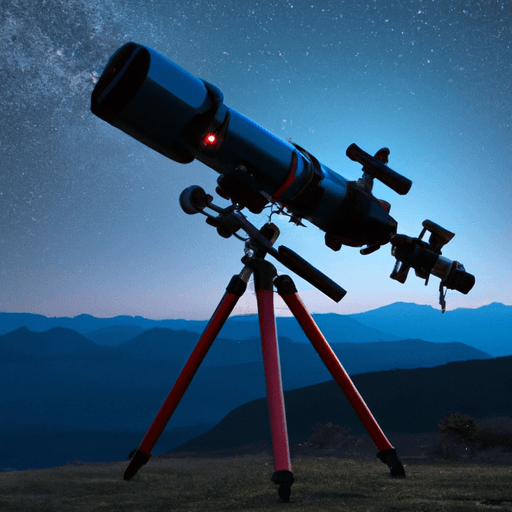
Additional Accessories for Beginner Telescopes
To enhance your stargazing experience and get the most out of your telescope, there are several essential accessories to consider:
Eyepieces
Eyepieces come in various focal lengths and determine the magnification of your telescope. Having a selection of eyepieces with different focal lengths allows you to customize the viewing experience and observe a wide range of objects.
Barlow Lenses
Barlow lenses are accessories that increase the effective focal length of your telescope, resulting in higher magnification. They are a cost-effective way to expand your eyepiece collection and achieve greater versatility in observing celestial objects.
Finderscopes
Finderscopes are small telescopes or red dot finders attached to your main telescope. They help you locate specific objects in the night sky by providing a wider field of view and helping guide your telescope to the desired target.
Filters
Filters are useful accessories for enhancing the view of specific celestial objects. For example, a moon filter can reduce the brightness of the moon, allowing for more details to be seen. Filters can also improve contrast and reduce light pollution when observing deep-sky objects.
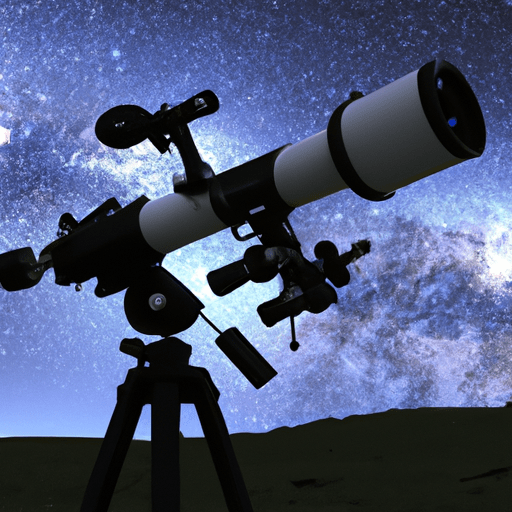
Conclusion
Choosing the best telescope as a beginner is an exciting and personal journey. By considering the different types of telescopes, your budget, and your specific needs, you can find a telescope that will provide you with hours of enjoyment and discovery. Remember to select a reputable brand, such as Celestron, Orion, Meade, or Sky-Watcher, and consider additional accessories like eyepieces, Barlow lenses, finderscopes, and filters to enhance your stargazing experience. Happy stargazing, and may your telescope open up a world of wonders in the night sky!

